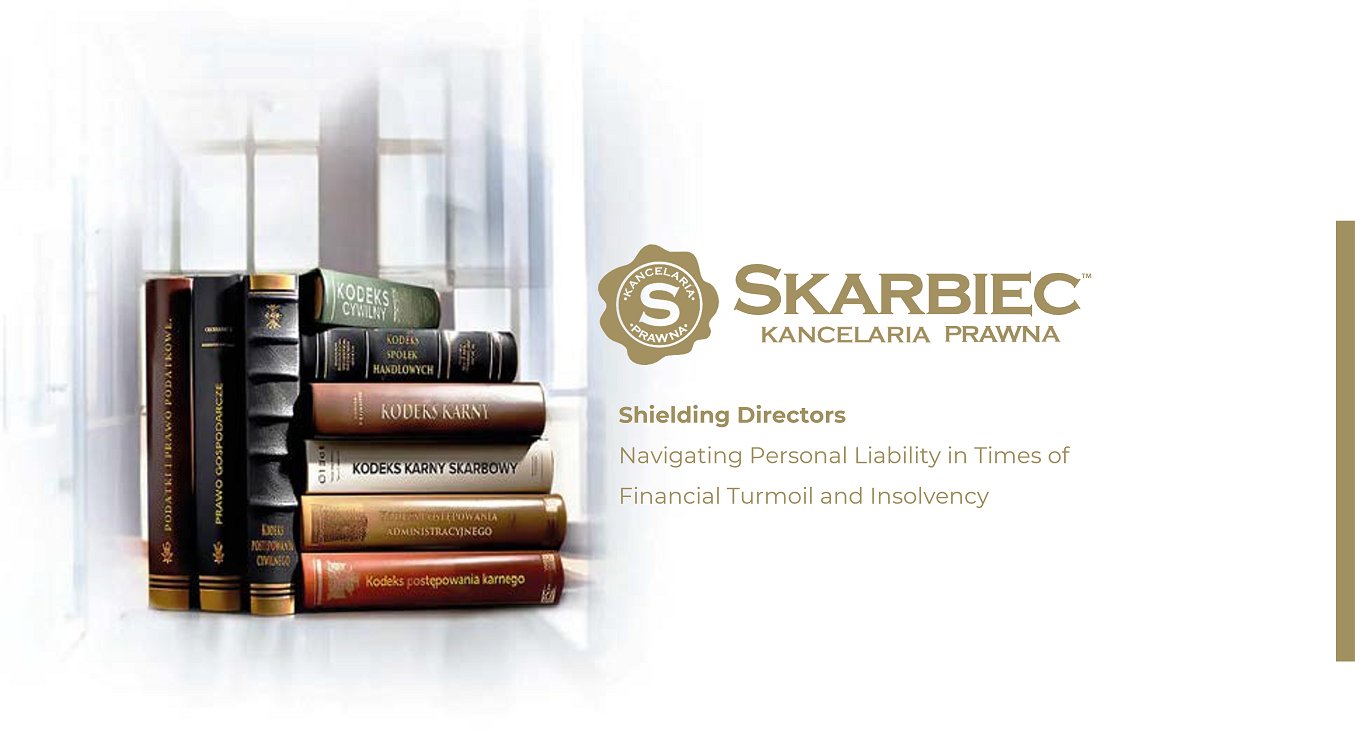
Directors’ criminal liability for harming creditors and bankruptcy-related conduct
Chapter 12
In most jurisdictions, company directors are held responsible for “Antecedent Transactions”, among which a number of typical situations can result in director liability:
1) Preference transactions – Directors may incur personal liability for causing loss to creditors if they engage in a transaction that gives a creditor a preferential position over others in an insolvent liquidation (had the preference not taken place).
Polish law explicitly prohibits preferential transactions and imposes criminal sanctions for violating this prohibition.
Those who, in the event of impending insolvency or bankruptcy, unable to satisfy all creditors, pay or secure only some, thereby acting to the detriment of others, are subject to a fine, imprisonment for up to 2 years, or restriction of liberty. The offense under Article 302 § 1 of the Criminal Code consists of partially or completely satisfying a group of creditors to the detriment of others. The effectiveness or ineffectiveness of enforcement proceedings for these obligations and the criteria used by the accused in regulating such obligations (why they decided to give preference to certain creditors) are entirely irrelevant to the existence of this offense [judgment of the Katowice Court of Appeal – II Criminal Department, dated December 2, 2021, case no. II AKa 238/21].
Other types of Antecedent Transactions in different legal systems might include:
2) Transactions at an undervalue – Directors may be required to provide compensation to the company and its creditors for any losses incurred due to the company engaging in a transaction at an undervalue. A transaction at an undervalue occurs when the company either gifts an asset to a third party or receives less than the reasonable market value for it.
3) Transactions defrauding creditors – Directors may be obligated to compensate the company and its creditors for any losses sustained as a result of assets being transferred with the purpose of placing those assets out of reach of creditors.
In Poland, we have a slightly different concept in this regard. Without explicitly distinguishing “Transactions at an undervalue” and “Transactions defrauding creditors,” we have specified four other offenses to the detriment of creditors:
1) In the event of impending insolvency or bankruptcy, anyone who hinders or diminishes the satisfaction of their creditor by removing, concealing, disposing of, giving away, destroying, actually or apparently encumbering, or damaging components of their assets, is subject to a sentence of imprisonment for up to 3 years.
2) In order to obstruct the enforcement of a court judgment or another state authority’s decision, anyone who hinders or diminishes the satisfaction of their creditor by removing, concealing, disposing of, giving away, destroying, actually or apparently encumbering, or damaging components of their assets that have been seized or are at risk of seizure, or who removes seizure marks, is subject to a sentence of imprisonment ranging from 3 months to 5 years.
3) A debtor who obstructs or limits the satisfaction of multiple creditors by creating a new business entity based on legal provisions and transferring components of their assets to it, is subject to a sentence of imprisonment ranging from 3 months to 5 years. Additionally, the same penalty applies to a debtor who leads to their own bankruptcy or insolvency while indebted to multiple creditors.
4) A debtor who recklessly leads to their own bankruptcy or insolvency, especially by squandering components of their assets, incurring obligations, or engaging in transactions blatantly contradicting the principles of management, is subject to a fine, restriction of liberty, or imprisonment for up to 2 years.

Founder and Managing Partner of Skarbiec Law Firm, recognized by Dziennik Gazeta Prawna as one of the best tax advisory firms in Poland (2023, 2024). Legal advisor with 19 years of experience, serving Forbes-listed entrepreneurs and innovative start-ups. One of the most frequently quoted experts on commercial and tax law in the Polish media, regularly publishing in Rzeczpospolita, Gazeta Wyborcza, and Dziennik Gazeta Prawna. Author of the publication “AI Decoding Satoshi Nakamoto. Artificial Intelligence on the Trail of Bitcoin’s Creator” and co-author of the award-winning book “Bezpieczeństwo współczesnej firmy” (Security of a Modern Company). LinkedIn profile: 18 500 followers, 4 million views per year. Awards: 4-time winner of the European Medal, Golden Statuette of the Polish Business Leader, title of “International Tax Planning Law Firm of the Year in Poland.” He specializes in strategic legal consulting, tax planning, and crisis management for business.







